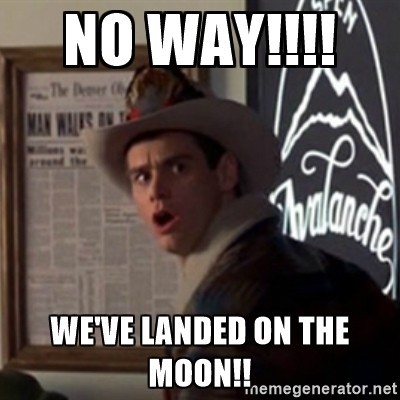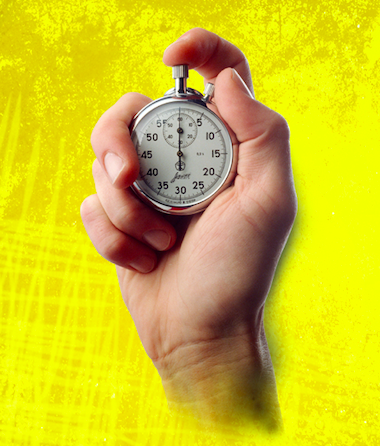
I completely failed the first time as a young Sport Psychology coach.
I started working with the a University baseball team. I had my mental toughness session all planned out and we were going to set S.M.A.R.T. goals. The word still makes me cringe.
Of course, the team session went well, we did the song and dance, wrote them out, shared them, and even had specific team ones. But, I quickly learned smart goals are stupid!
One of the goals the entire team agreed upon was no errors for the upcoming weekend series. The very first play was a ground ball to 3rd base, which he bobbled and bam, there goes that S.M.A.R.T goal down the drain.
Goals are exactly like fitness. We ALL know it is important and want to do it, but the first time we miss a workout, our goal now becomes a gut-wrenching reminder about why we hate goals.
Goal-setting works, but SMART is plain dumb.
Shockingly, Some companies or teams still use this outdated method to motivate and hold you accountable for production? Are you kidding me? Do people still drive to Blockbuster to rent movies?
Three reasons why SMART goals are stupid.
Imagine if Martin Luther King Jr. said ” I have a mission statement” Or “I have a realistic goal?”
- First, SMART Goals do not offer any type of plan.
- Second, they inherently make you set goals that are “realistic or achievable.”
- Third, they fail because there is no emotional connection to the goals.
1: SMART goals are apathetic.
They offer no plan, sort of like the gym teacher who just rolls out the balls at class time. These teachers simply have different things on their mind. SMART goals are bumpers for bowling.
They don’t actually help you become better.
2: They make you put a ceiling on the goal.
If we reached our goal in the past, (which we did, because we are achievers) then the goal just moves a bit further out next time.
It produces an assembly line of goal setting, not a way to actually make a difference. For instance, Improve your market share for the year by 5%.
How is that creative or inspiring? Set Top Gun Goals Instead… This strategy trumps smart goals are stupid.
3: There is no emotional connection.
SMART goals are similar to packing for the vacation, there is a precise to-do list and set time to get them done.
However, real goals are instead all about the vacation itself and what you want to do there. We need to make an emotional connection to that goal and vision about our why; our passion.
Your why has to make you cry, if it doesn’t, it’s not your why.
Here’s what Sport Psychology can do instead:
Step #1- Set a vision.
Who do you want to become? Not what do you want to achieve, but who do you want to become? There’s room there for only 1 or 2 goals, everything else just becomes a distraction.
Step #2- Develop habits.
First we create habits, then our habits create us. We are what we repeatedly do, so begin forming routines and beliefs that align with your vision of who you want to become.
Step #3- Focus on the now.
Become a Millionaire is your goal; great. But, you only made $85k last year?
Focus on the short-term objectives you have for your vision.
These shorter-term goals are needed for momentum. When we ride a bike, we don’t need to pedal all the time, we just need momentum. These short-term goals need to be delved into deeper and set for us to be pleased not satisfied along our journey.
Step #4- Look at them.
Look at your vision every day. It’s how we build mental toughness!
They have to be places where we can see them and reinforce our vision. Tanya Patrice writes about the importance of looking at the goals every day and even posting motivational quotes alongside.
Obstacles and adversity will emerge along your process of becoming who you want to become. Don’t worry that SMART goals are stupid, instead make the commitment that nothing will keep you from it, no matter what it takes.
 Dr. Rob Bell is a Sport Psychology Coach. DRB & associates coach executives and professional athletes. Some clients have included three different winners on the PGA Tour, Indy Eleven, University of Notre Dame, Marriott, and Walgreens.
Dr. Rob Bell is a Sport Psychology Coach. DRB & associates coach executives and professional athletes. Some clients have included three different winners on the PGA Tour, Indy Eleven, University of Notre Dame, Marriott, and Walgreens.
- Check Out All The Books
- Keynote Speaking On Mental Toughness
- Mental Toughness Podcast as we interview expert athletes and coaches about Mental Strength and their Hinge Moment.
- New Blog Posts are published weekly.
- Follow on Twitter @drrobbell
- Follow on Instagram @drrobbell



